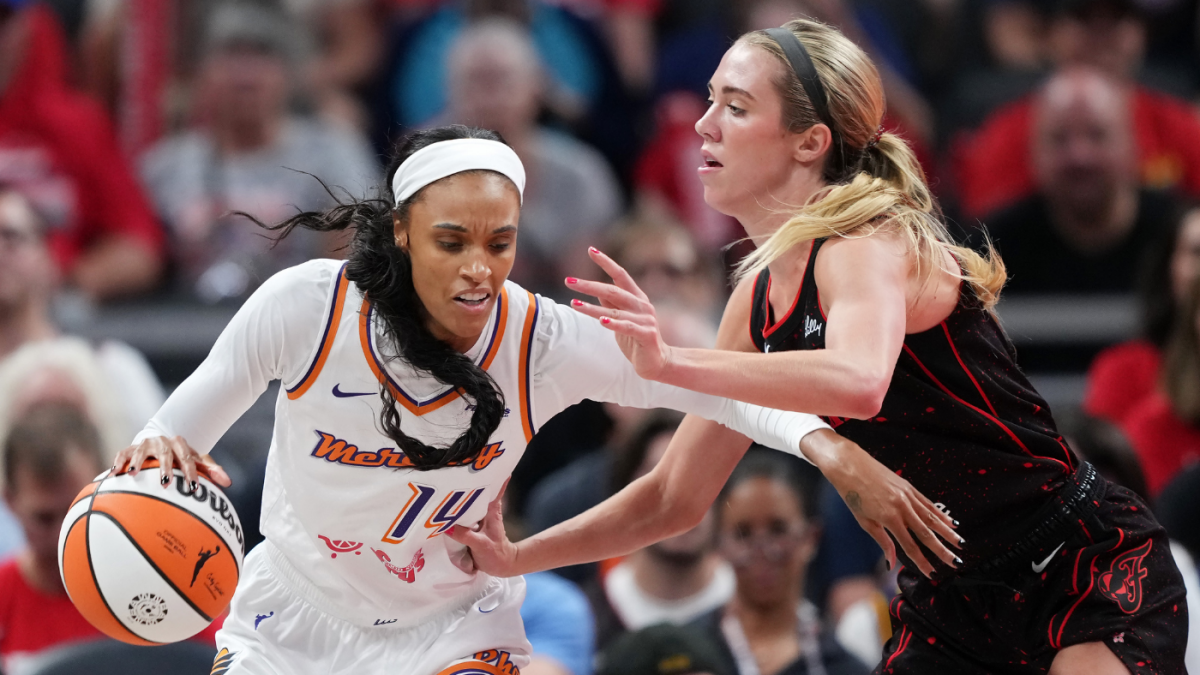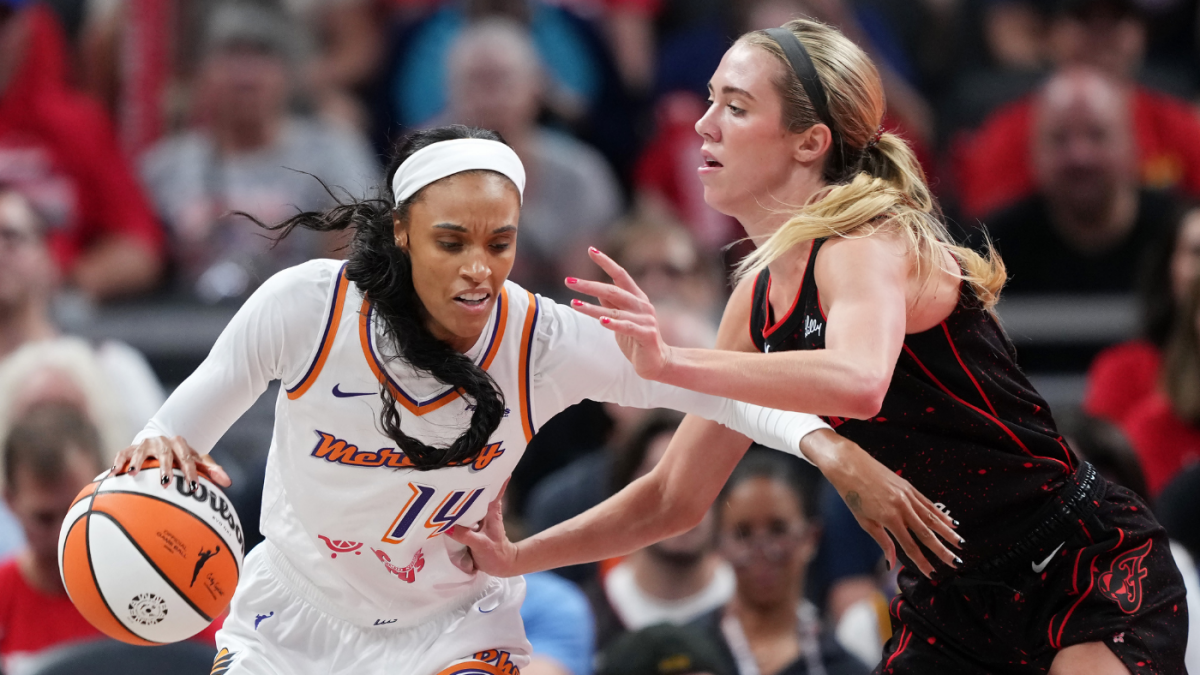The DeWanna Bonner Controversy: A Deep Dive into Fan Reactions and WNBA Dynamics
Introduction: The Storm Surrounding DeWanna Bonner
The world of professional sports thrives on drama, but few stories capture the raw emotions and complexities of the athlete-fan relationship quite like the recent DeWanna Bonner controversy in Indiana. When the WNBA star returned to Indiana as a member of the Phoenix Mercury, she was met with a storm of boos and jeers from Fever fans. This reaction sparked a heated debate about fan behavior, player loyalty, and the often-unforgiving nature of professional sports. To fully grasp the significance of this incident, it’s essential to dissect the events leading up to Bonner’s contentious homecoming and explore the broader implications for the WNBA.
The Fever’s Brief and Turbulent Relationship with Bonner
DeWanna Bonner’s time with the Indiana Fever was short-lived and fraught with challenges. Acquired with high hopes, Bonner, a six-time WNBA All-Star, struggled to integrate into the Fever’s system and establish on-court chemistry with her teammates. Reports suggest that Bonner herself was dissatisfied with the situation, leading her to request a trade. The Fever ultimately waived her after just nine games, allowing her to return to the Phoenix Mercury, where she had previously enjoyed success.
This abrupt departure, especially after such a brief tenure, fueled the perception among Fever fans that Bonner had used the team as a stepping stone or lacked commitment to the franchise. The quick turnaround and her return to Phoenix exacerbated the sense of betrayal and disappointment among the fanbase. The label of “quitter” became a rallying cry for fans who felt let down by Bonner’s perceived lack of loyalty.
The Hostile Reception at Gainbridge Fieldhouse
The tension reached a boiling point when Bonner and the Phoenix Mercury faced the Indiana Fever at Gainbridge Fieldhouse. As Bonner entered the game, the boos erupted, creating an atmosphere of hostility that persisted throughout the contest. The jeers were not isolated to a small group of disgruntled fans but were widespread, reflecting a collective sense of frustration and anger.
While booing is a common expression of fan displeasure, the intensity and duration of the boos directed at Bonner raised questions about the appropriateness of such behavior. Some argue that booing is a natural part of the game, a way for fans to show their support for their team and disapproval of opposing players. However, others view it as disrespectful, particularly when aimed at a player who was once expected to be a key contributor to the team.
Kahleah Copper’s Defense of Bonner
Amidst the storm of criticism, Kahleah Copper, Bonner’s teammate on the Phoenix Mercury, stepped forward to defend her. Copper described the Fever fans’ treatment of Bonner as “distasteful” and praised Bonner’s character, calling her the “sweetest soul.” She emphasized that the situation simply “didn’t work” for Bonner and that the level of animosity was unwarranted.
Copper’s passionate defense highlighted the camaraderie within the Mercury team and the players’ support for one another. Her comments also underscored the human element often overlooked in the heat of competition, reminding fans that athletes are not just performers but individuals with feelings and emotions. This defense raised important questions about the impact of fan behavior on athletes and the need for respectful conduct in professional sports.
Broader Implications for the WNBA
The DeWanna Bonner controversy extends beyond a single game or a specific player, touching on several broader issues within the WNBA. One of the most significant is the increasing mobility of players within the league. Free agency and trades have become more common, allowing players to pursue better opportunities or seek teams that align with their playing style. However, this increased mobility can lead to situations like Bonner’s, where fans feel betrayed by players who leave their teams after a short period.
Additionally, the controversy highlights the growing pressure on WNBA players, particularly those with high profiles. The league’s surge in popularity, driven by stars like Caitlin Clark, has brought increased attention and scrutiny. Fans now hold players to higher standards, reacting more strongly to perceived failures. This heightened expectations can create a challenging environment for athletes, who must navigate both on-court performance and off-court perceptions.
Navigating the Complexities of Professional Sports
The DeWanna Bonner saga serves as a reminder of the complex dynamics that exist within professional sports. It’s a world where loyalty, performance, and fan expectations often collide, creating difficult situations for both players and teams. While fans have the right to express their opinions and support their team, it’s crucial to consider the impact of their actions on the athletes involved. Striking a balance between passionate support and respectful behavior is essential for maintaining a positive and welcoming environment in the WNBA and other professional sports leagues.
Conclusion: A Lesson in Loyalty and Respect
The boos directed at DeWanna Bonner serve as a stark reminder of the intense emotions that sports can evoke. Whether the reaction was justified or simply an overreaction, it has undoubtedly left a mark on Bonner, the Fever organization, and the WNBA as a whole. This incident may serve as a lesson, prompting fans to consider the human element behind the game and encouraging players to approach team commitments with greater care. Alternatively, it may simply be another example of the harsh realities of professional sports, where loyalty is often fleeting and fan expectations can be unforgiving. Regardless, the DeWanna Bonner controversy is a compelling case study in the complex relationship between athletes, teams, and the passionate fans who support them.












